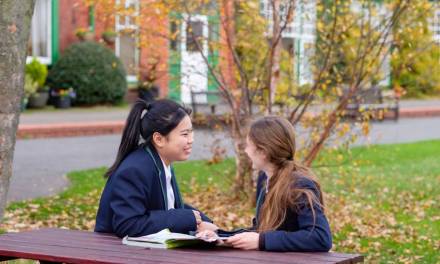Ofsted Chief, Amanda Spielman has said the coronavirus pandemic has caused ‘a crisis for all children’, as disadvantaged children look set to fall behind in education as a result of inequality.
BBC Newsnight this week reported that the pandemic could undo 10 years of improvements in the education sector. Children may have to go to school 7-days-per-week to make up for lost time. The pandemic is also likely to increase the north-south divide.
The situation has caused a great deal of concern for individuals across the education sector. But what difference is the crisis making to pupils from the most disadvantaged backgrounds – and how will this crisis affect everyone concerned? This blog post investigates.
Concern for students from disadvantaged backgrounds or lacking motivation
The result is affecting children the most who are subject to inequality as a result of the ‘digital divide’ – as reported by EDLounge last week.
Katharine Birbalsingh, Headteacher and Michaela Community School told Newsnight:
At our school every week, the children get a phone call from one of the teachers and that is to ensure that they stay on task and they do the work that we’ve set for them. We have some Zoom lessons and we have some video lessons, but that phone call is especially crucial, in particular for the most disadvantaged children, to inspire them to keep working at this time.
Yes (I can say with certainty I know where every kid is). But I can also say with certainty that not all of them are doing the work they can be doing.
If they are in a family which is proactive and is able to support them at home with the work then they are going to produce lots and lots – some children who are working hours and hours every day. And then there are other children who aren’t producing much work and that is because of the home life. One important thing to say is that people assume it’s because they don’t have access to tablets. What we find is because they have so much access to a tablet or a phone that they spend their time on Snapchat or Instagram. On the one hand, they need the tablet or the phone to be able to access the lessons or the online learning. On the other hand it is that device that is actually destroying their ability to do the work because Snapchat and Instagram have a better rate of pull than your GCSE history lesson.
No (we are not confident that we will regain lost ground). It is a great concern for me that the most disadvantaged children that they will fall behind. Having said that I do believe that if we were to go back after May half-term it isn’t an enormous amount of time, it isn’t a complete disaster. It depends on getting them working when they come back and sliding back into things. One of those things is that they fallen out of habit of doing that regular homework and so on. It may be difficult to get them back on track. It really does depend on when they go back, but I share the concern about the most disadvantaged. They will be at home, sadly not doing very much in terms of their school work.
Younger people should be a Government priority
People across the education spectrum are watching closely. A former Conservative Education Secretary has also led concern about the rising attainment gap caused by the crisis. Justine Greening, Education Secretary for the period 2016-18 said:
I think it’s inevitable that what is happening will take us backwards on access to opportunity. There is already an opportunity gap between young people from disadvantaged backgrounds and those from more advantaged backgrounds. Coronavirus makes that even wider. We have a Government that says it wants to focus on levelling up and this now has to be centre-stage for Boris Johnson as he looks forward because otherwise this generation of young people will be the ones that really pay the long-term legacy for he coronavirus crisis that we’re in right now and we can’t let that happen.
Education has to be at the core. If you’re going to level up Britain, it’s got to go wider than just looking at education, there’s a role for business as well. Smart business leaders are not just looking at what they can do to help on the coronavirus crisis, they’re also looking beyond the crisis to see what they can do to help close this opportunity gap.
In the immediate short term, the Government will need a catch up plan and it needs to talk to teachers and unions about how best to do this. Teachers have worked their socks off during this crisis to try and stay in touch with children. It really matters. Parents have done their level best. But clearly there needs to be a more structured plan about how we can help those young people catch up. Beyond that we need to look into our university system and the apprenticeships. Generations of young people who are coming out of those educational systems who aren’t going to be confronted with the job opportunities that they hoped for. The young people looking at going to university, for whom, part time work was how they were planning to find some of their accommodation and the wider costs of being at university, that will have now gone.
A lot of students will feel they have missed two terms (of university), partly down to the strikes at the beginning of the year, now down to coronavirus. They’re confronted with a term in the autumn now that will be online. This is not what they paid for.
I think the issue of maintenance grants is one that the Government could quickly look at. The more fundamental issue is Britain isn’t going to get back on it’s feet if we continue to be a country where roughly a third of children have access to good opportunities, but two thirds find that they are locked out of opportunity. It is still a country which is about connections more than competences.
Which school groups will be hardest hit?
Speaking last week, Amanda Spielman (Chief Inspector for Ofsted) said that “(attainment) gaps will widen, especially in the short term.“
Speaking to Newsnight, she spoke about the groups that are hardest hit.
We are deeply involved in the emergency support work that is going on, coordinated by various parts of central and local government. This point is really important. So many children are affected. It is not just the poorest, it’s the ones with with little English, children with special educational needs, the young ones who can’t read and write yet, and less motivated children across the board. As Katharine point out, not all children are equally motivated. For some it is very hard to get them to take advantage of the fantastic resources and lessons that are on offer.
It is not feasible to enforce (learning), we are reliant on the goodwill of the teaching profession to a considerable extent at the moment and a lot of teaching staff are stepping up and doing a fantastic job. They are also introducing national initiative like the BBC’s own initiative, Oak National Academy. And there is a plan to get devices into the hands of the poorest children. There is a phenomenal amount of work going on but my fear is that despite all this effort, we will end up with a large proportion of children not making very much education progress, if any. Gaps widening substantially (is occurring) and will be a huge hill to climb when schools do go back.
Normalcy is the number one thing (to get students back up to standard) and most children are pretty resilient and will over time bounce back to where they need to be. We need to see this as a crisis for every single child but we do need to make sure that children as quickly as possible are back in the kind of structure and routine that school will give them what they need to make really strong educational progress: the curriculum and good teaching. And that is to all children, including the most disadvantaged. Schools have established mechanisms for layering in the extra help and support for the children who need it most and they are going to need to get to work really fast on that.
I think the message I would give, in some respects, is about keeping it as simple as possible, not layering on too many additional complexities for schools because they are going to have a lot to deal with already. It seems likely that school return will have to be staggered because of social distancing and nobody quite knows yet how that will work in a school complex, especially with younger children. We really need to make sure that we don’t make school’s jobs especially complicated. They’ve got to have a clear brief and they’ve got to have the space to do what they do well.
Will education in certain parts of the country be more hardest hit?
In a letter to Gavin Williamson, more than 50 MPs said urgent action is required to prevent the poorest pupils falling behind long-term.
Two in three secondary schools teaching the most disadvantaged children are situated in the North of England – suggesting a North/South divide may be created by the crisis.
The letter states:
“The most disadvantaged children fall behind their peers over a long summer holiday, and the shutdown will widen the North’s disadvantage gap and with it the north-south education divide.”
Will students be motivated to catch up lost education?
The Government is currently tasked with finding solutions to these far-reaching problems. A catch up programme has been discussed.
Yesterday, Gavin Williamson (UK Education Secretary) ruled out using the summer holidays as classroom-allocated time, but said that options including hiring more ex-teachers to cover the shortfalls, was being considered.
Speaking on additional classroom time, Katharine was asked specifically about Saturday learning. She responded:
There will be teachers who want to do these Saturday lessons and this holiday time. But, we must remember that if the children were not doing the work at the moment because of lack of family support, a lack of an environment that encourages and has a respect for education – are they really going to come in on the Saturdays? I suspect the teachers’ will be there, teaching themselves. Perhaps for younger children, that makes sense. For the children who are sending in pretend emails from their parents – that are not from their parents, but to explain why they weren’t in the Zoom lesson or for the children who have cut a picture out so it looks as though they are in the lesson but they’re not there – are they really going to come in on a Saturday morning to do extra work? It’s just more complication. And I’m not sure I know what the solution is, but it’s not as easy as saying all we need to do is provide everybody with a tablet and get them in on Saturdays and we’ll fix it. It’s far more complex because children are different human beings.
How can EDLounge help to reduce inequality in the UK schools system?
EDLounge Limited believes in education for all. We have been working for the last decade to provide an education for vulnerable students who will be most hardest hit by the crisis.
Our bank of more than 11,000 lessons will provide the education catch up necessary to achieve progress. Our online learning tools provide a fun learning environment which has helped large numbers of students re-engage with education. We have the ability to track pupil use of our system and their progress, which teachers tell us is an essential for learning during this pandemic.
For more information click here or call 01909 568 338 to find out more about our services.









